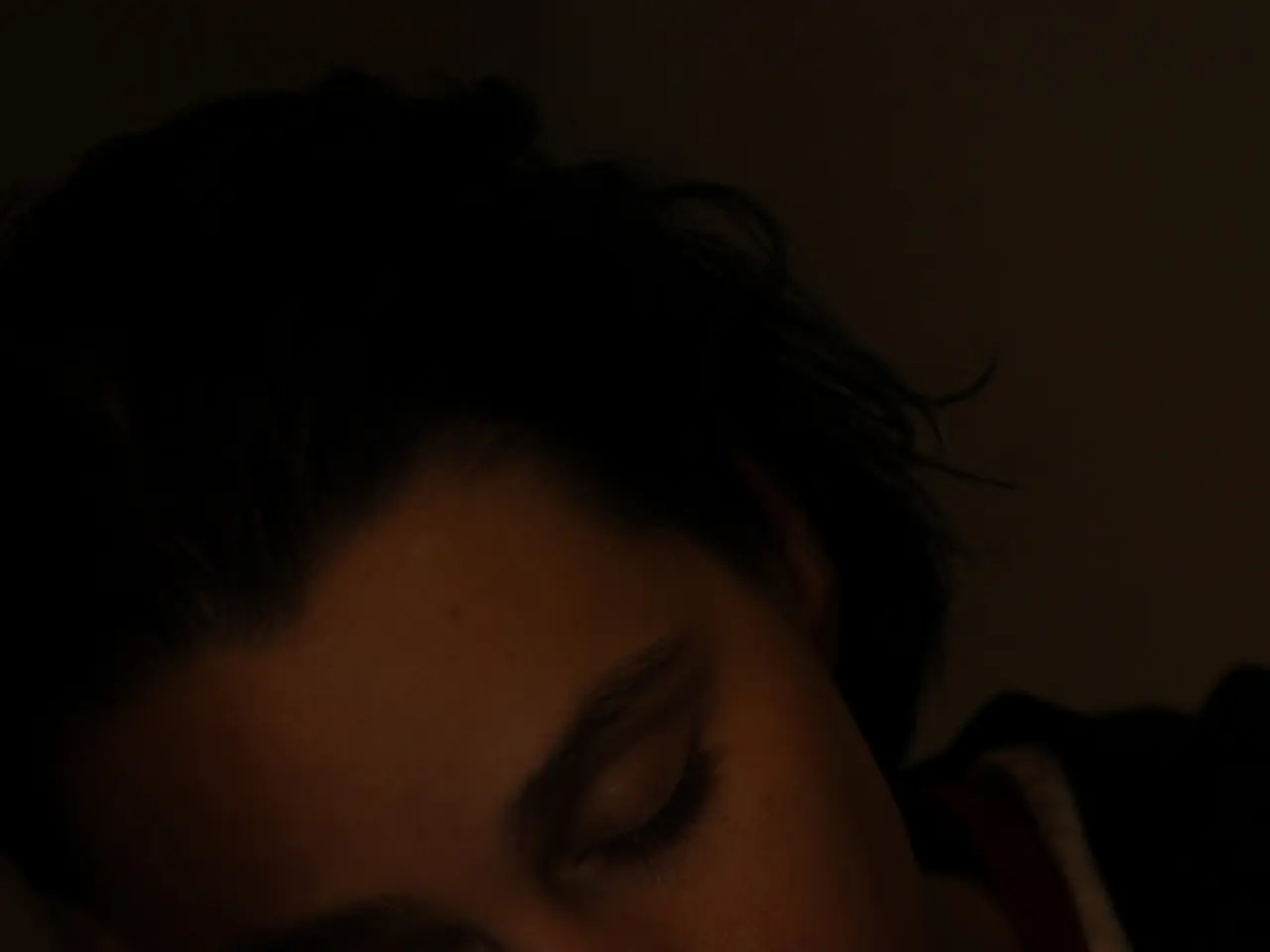Unusual Sleep Behavior: Insights on Sexsomnia
In the realm of sleep disorders, one of the less-known conditions is sexsomnia, a parasomnia characterized by sexual activities during deep sleep. The exact causes, symptoms, and prevalence of this unusual condition remain largely elusive, with only 94 documented cases worldwide as of a 2015 study.
Sexsomnia episodes typically occur during non-rapid-eye-movement (NREM) sleep, the deepest stage of the sleep cycle, and can involve a range of behaviours, from fondling and moaning to sexual intercourse. Common symptoms also include heavy breathing, elevated heart rates, sweating, and unresponsiveness to the outside environment during the events.
Managing the emotional, psychosocial, and criminal consequences of sexsomnia necessitates a comprehensive, multifaceted approach. Improving sleep hygiene and stress management are foundational strategies, as poor sleep and stress are common triggers of sexsomnia episodes. Techniques include relaxation therapies and behavioural changes to enhance sleep quality and reduce stressors.
Treating underlying sleep disorders that may contribute to sexsomnia is critical, often involving sleep studies and medical interventions tailored to the individual. Psychological support and counseling can help individuals and their partners cope with feelings of confusion, fear, or betrayal caused by episodes, addressing relationship strain and emotional distress. Education about the condition fosters understanding and reduces stigma, aiding psychosocial adjustment for both patients and their close contacts.
Sexsomnia raises challenging legal and ethical issues related to consent, as individuals with sexsomnia may engage in sexual activities without conscious awareness. Legal management may require expert testimony, medical documentation, and possibly forensic evaluations to establish the presence of sexsomnia and determine accountability. Navigating these issues demands collaboration between medical professionals, legal experts, and affected families to ensure fair and sensitive handling of cases.
Medical and behavioural treatment for sexsomnia includes off-label medications, lifestyle modifications, and addressing underlying conditions. Medications such as clonazepam have been used to reduce episode frequency in some cases, while treatment for sexsomnia related to prescription medications, alcohol, or illegal drugs involves stopping or reducing use. Treating underlying conditions that cause sleep disruption, such as sleep apnea, may also reduce or resolve cases of sexsomnia.
The management and addressing of sexsomnia’s consequences require integrated care combining medical treatment, psychological support, legal guidance, and interpersonal communication to mitigate its complex impacts on individuals’ emotional well-being, social relationships, and legal standing. The current effect of treatment on sexsomnia is poorly understood, given the symptoms are difficult to track long-term. However, in most reported cases, symptoms of sexsomnia were reduced or resolved when individuals got more consistent, high-quality sleep.
References: [1] Morgentaler, A. (2015). Sexsomnia: A Review of the Literature. Sexual Medicine Reviews, 3(4), 287-295. [2] Iber, C., Ancoli-Israel, S., Chesson, A. L., Quan, S. F., & Walsh, J. K. (2007). The AASM Manual for the Scoring of Sleep and Associated Events: Rules, Terminology and Technical Specifications. American Academy of Sleep Medicine. [3] American Academy of Sleep Medicine. (2014). The International Classification of Sleep Disorders, Third Edition. American Academy of Sleep Medicine. [4] Ohayon, M. M., Carskadon, M. A., Guilleminault, C., & Vitiello, M. V. (2004). Sleep Disorders and Psychiatric Comorbidity. Journal of Clinical Psychiatry, 65(Suppl 10), 1-11. [5] Hauri, P. J. (2002). Sleep Disorders and Behavioural Problems. Journal of Clinical Psychopharmacology, 22(2), 167-176.
- The field of sleep disorders cultivates discussions around lesser-known conditions, such as sexsomnia, a parasomnia marked by sexual activities during deep sleep.
- Sleep studies and medical interventions are often crucial in treating underlying sleep disorders linked to sexsomnia, aiding in its management.
- Emotional well-being, social relationships, and legal standing can be adversely affected by sexsomnia, necessitating multidisciplinary strategies, including psychological support, legal guidance, and interpersonal communication.
- Techniques for enhancing sleep quality and reducing stressors play significant roles in preventing sexsomnia episodes, as poor sleep and stress are common triggers.
- sexsomnia carries complex legal and ethical issues, particularly in regards to consent, where expert testimony and forensic evaluations might be necessary to establish accountability.
- Improving health-and-wellness can offer a holistic approach to managing sleep disorders like sexsomnia, with the current understanding indicating that getting more consistent, high-quality sleep can reduce or resolve symptoms.




